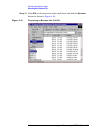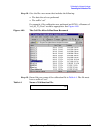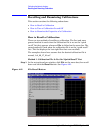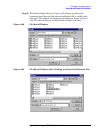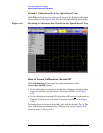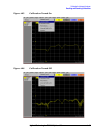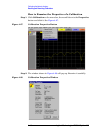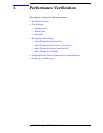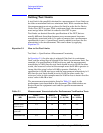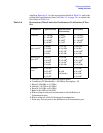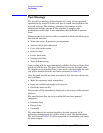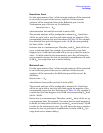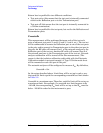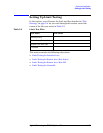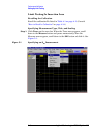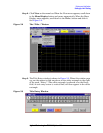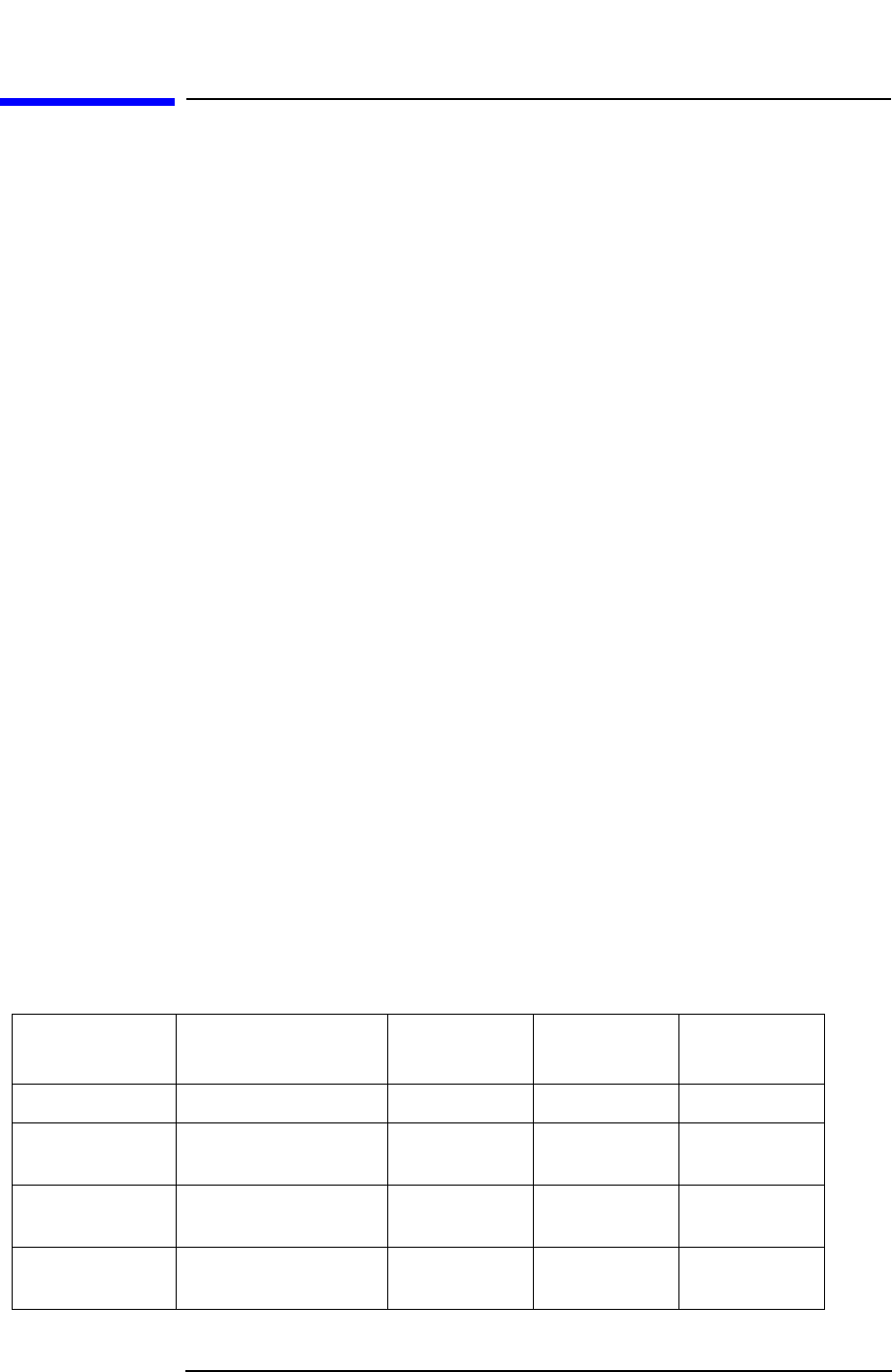
5 -2 Agilent Technologies Z5623A Option H48
Performance Verification
Setting Test Limits
Setting Test Limits
A test limit is the pass/fail criterion for a measurement. A test limit can
be either a maximum limit or a minimum limit. With a maximum limit,
the measurement must not go above the limit in order for the Device
Under Test (DUT) to pass. With a minimum limit, the measurement
must not go below the limit in order for the DUT to pass.
Test limits are derived from the specifications of the DUT, but are
usually different from them because every measurement has some
uncertainty associated with it. In order to ensure that a performance
specification is met, a “guard band” must be added to account for the
uncertainty in the measurement. This can be done by applying
Equation 5-1.
Equation 5-1 How to Set Test Limits
In Equation 5-1, the plus sign is selected if the limit is a minimum
limit, and the minus sign is selected if the limit is a maximum limit. For
example, if a specification is 20 dB minimum and the measurement
uncertainty is 2 dB, then the test limit should be set to 22 dB. In other
words, the measured value in this example must be 22 dB or greater to
insure that the actual value is 20 dB or greater. Similarly, if a
specification is 20 dB maximum and the measurement uncertainty is 2
dB, then the test limit should be set to 18 dB. In other words, the
measured value in this example must be 18 dB or less to insure that the
actual value is 20 dB or less.
The measurement uncertainties listed in Table 5-1 apply to the
performance tests described in this document. The uncertainties are
derived from the equipment used and the specific measurements
performed.
Test Limit Specification Measurement Uncertainty±=
Table 5-1 Measurement Uncertainties for Performance Verification Tests
Measurement
(dB)
Band 1
(300 kHz - 1.3 GHz)
Band 2
(1.3 - 3 GHz)
Band 3
(3 - 6 GHz)
Band 4
(6 - 9 GHz)
Crosstalk 5 557
Return Loss
(port active)
1.5 1.0 0.5 0.5
Return Loss
(port off)
1.5 1.5 1.0 0.5
Insertion Loss 0.3 0.3 0.3 0.3



